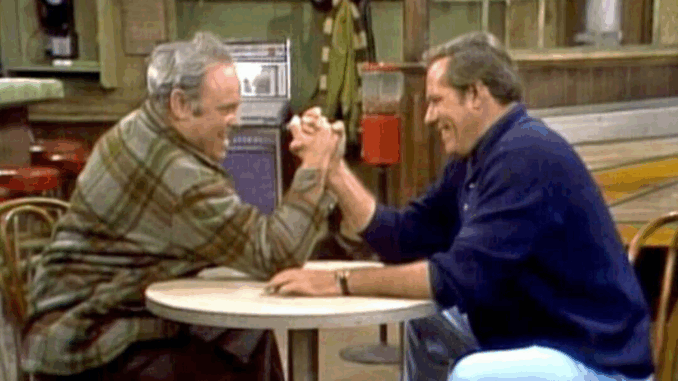
Learn how All in the Family made history on February 9, 1971 with “Judging Books by Covers”—featuring Archie’s friend Steve, TV’s first openly gay sitcom character, and sparking crucial cultural change.
On February 9, 1971, All in the Family aired its groundbreaking Season 1 episode titled “Judging Books by Covers,” marking television history by introducing Steve as the first openly gay character in a U.S. sitcom. This moment didn’t just push boundaries—it reshaped how sitcoms could tackle social issues with nuance and integrity.
Introducing Steve: A Bar Buddy, Unlike Any Before
Steve visits Mike and Gloria’s home after returning from Europe, immediately catching Archie’s shock with his sensitive, intellectual demeanor. Archie’s bigotry surfaces as he dismissively refers to Steve as “a fairy.” But Mike stands firmly in Steve’s defense, arguing that assumptions based on appearance aren’t valid, and highlighting that even if Steve were gay, it wouldn’t change anything meaningful.
A Tone-Shifting Conflict
Rather than the typical caricature of the time, All in the Family featured a character who was confident, composed, and unapologetically himself. Steve defied stereotypes and quietly challenged both Archie and the audience’s expectations, pioneering TV’s representation of gay men as complex individuals.
Comedy Meets Cultural Commentary
The writing team used satire to blend humor and tension, enabling the show to deconstruct homophobia without preaching. Archie’s crude remarks about England being “a fag country” were met with subtle but firm pushback—from both Mike’s logic and Steve’s quiet dignity—creating a powerful, dialogue-driven moment of reflection.
A Turning Point for LGBTQ+ Representation
“Judging Books by Covers” planted a seed for authentic LGBTQ+ representation on TV. Though Steve never returned, the episode cleared a path for future shows to treat gay characters with sensitivity. It influenced later pioneers like sitcoms The Corner Bar and Australia’s Number 96, embedding the idea that television has power—and responsibility—to reshape social norms.